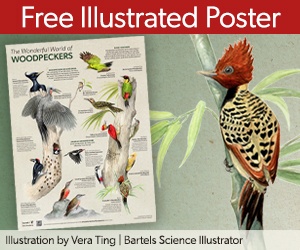Watch Nesting Red-tailed Hawks Live on Bird Cams
March 20, 2012
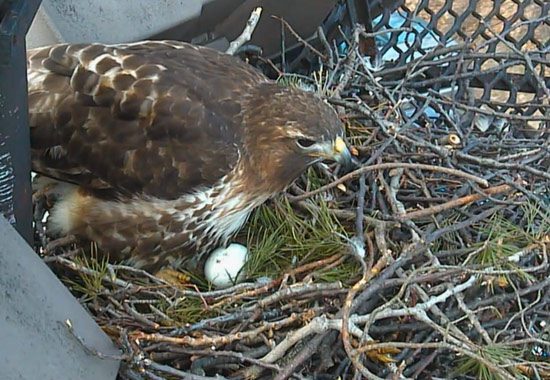
The female, nicknamed "Big Red," laid the first egg on Friday, March 16. 
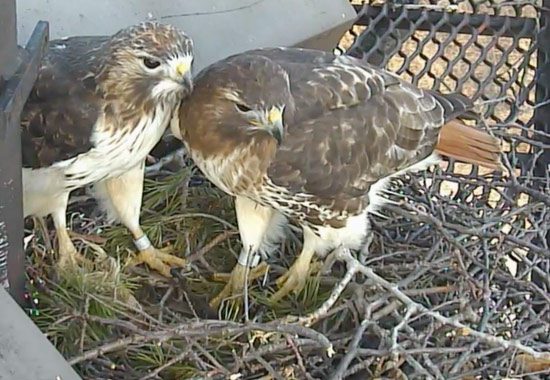
The new streaming camera offers lovely views of the Red-tailed Hawk pair (female at right). 
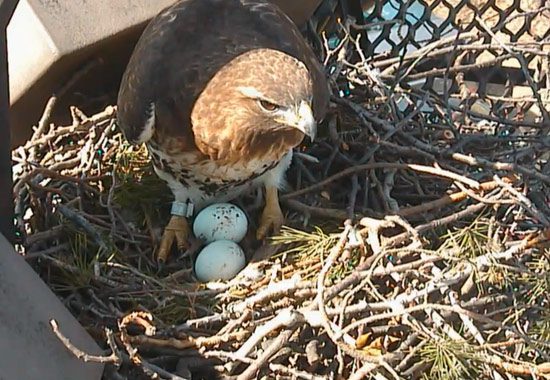
The female laid her second egg of the season on Monday, March 19. 
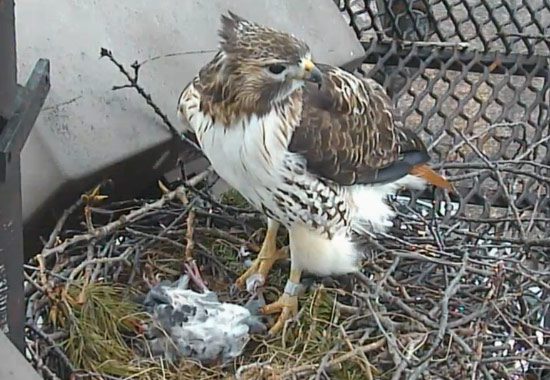
The male (here with a pigeon meal) is paler and slightly smaller than his mate.
A new nest camera high above a Cornell University athletic field is streaming up-close views of a Red-tailed Hawk nest via the Cornell Lab’s All About Birds website. The new camera stream puts viewers 80 feet off the ground and right beside the nest, where they can watch the hawks arrive, see them taking turns incubating the eggs, and compare notes on the two birds—the male has a more golden-tawny face and is slightly smaller than the female, which has been nicknamed “Big Red” for her alma mater.
The nest should be active for at least the next two months, and we hope you’ll join us as we watch the young birds hatch and grow. The parents have raised young here for at least the last four years. They began to make brief return visits to the nest site in late January. In February we started to see them arriving with dead sticks and green pine boughs to augment the nest materials left over from last year. As signs of spring began to show the pair began spending more time at the nest, and the male started bringing prey such as squirrels and pigeons to the nest to offer the female.
Last Friday (March 16) at about 2:10 p.m., the female laid her first egg of the season, and the pair took turns incubating it over the weekend. She added a second egg on Monday (March 19), and we’re now waiting to see if they lay a third. (The typical clutch size for Red-tailed Hawks is 2–3 eggs.) It takes 28–35 days of incubation for the eggs to hatch.
To make sure no one misses out on the early stages of this Red-tailed Hawk story, we’ve put together a temporary Bird Cam site where we invite you to watch these magnificent birds. Meanwhile we’re building a full-featured Bird Cams site that will launch in late April. It will feature many more species, including long-running streams from our NestCams project as well as new species such as Osprey, Black Vulture, and Great Horned Owl.
(Images via Bird Cams from the Red-tailed Hawk nest on Cornell University Campus. See live stream.)


All About Birds is a free resource
Available for everyone,
funded by donors like you


